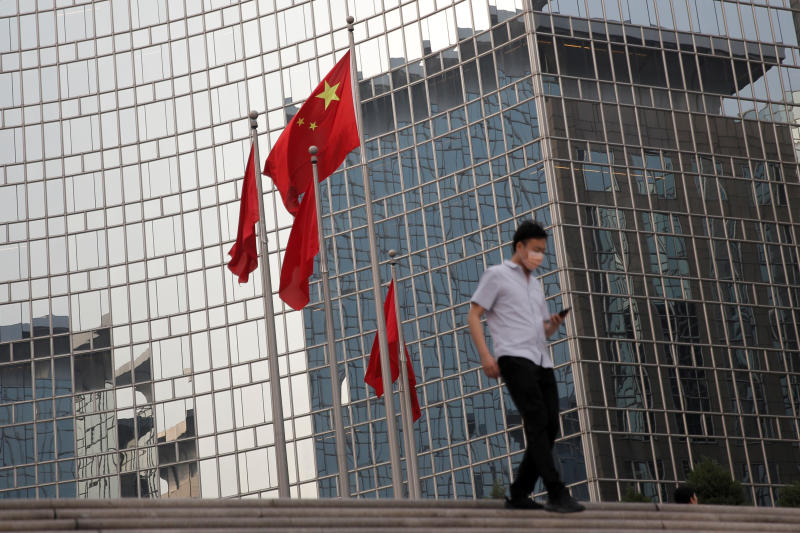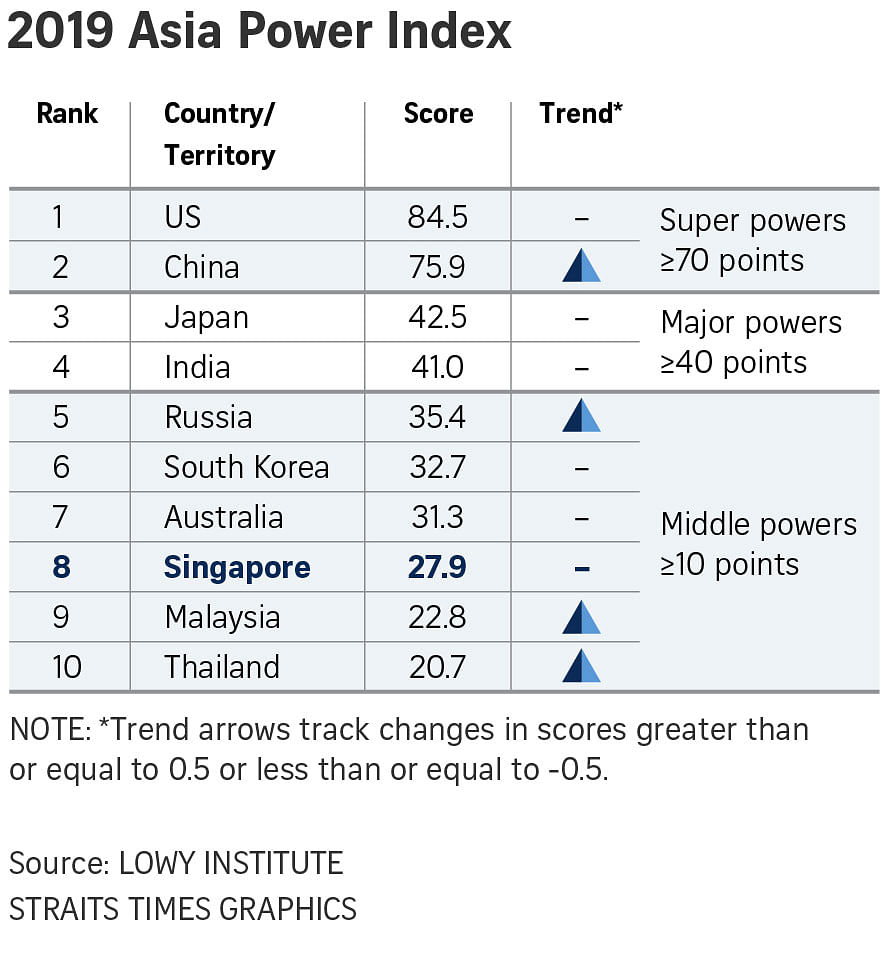China narrows US' lead in overall influence in Asia in latest power index
Sign up now: Get ST's newsletters delivered to your inbox

China's continued, albeit slowing, economic growth, as well as US President Donald Trump's "America first" foreign policy and focus on trade wars with other countries has contributed to its improvement in the Asia Power Index.
PHOTO: REUTERS
Charmaine Ng
Follow topic:
SINGAPORE - China is steadily narrowing the United States' lead as the pre-eminent superpower in the region, recording the biggest improvement this year in a power ranking among 25 countries and territories in Asia.
This was mainly attributed to China's continued, albeit slowing, economic growth, as well as US President Donald Trump's "America first" foreign policy and focus on trade wars with other countries.
The Asia Power Index, published on Wednesday (May 29) by think-tank the Lowy Institute in Australia, found that the US has now become a "net underachiever" in its ability to wield power in Asia.
The findings come amid tensions between the US and China over trade and security, and just before US Acting Defence Secretary Patrick Shanahan and China's Defence Minister Wei Fenghe are set to meet on the sidelines of the upcoming Shangri-La Dialogue this week.
Meanwhile, Singapore has maintained its overall position on the ranking this year, below Australia and ahead of Malaysia at 8th position. It also continues to be a "net overachiever", where its influence exceeds its resources.
In its analysis of the index's findings, the Lowy Institute noted that while the US' power score in the rankings remained unchanged from last year when the index was first published, it is unlikely that the country will be able to halt the narrowing gap between itself and China.
It added that this is likely accelerated by current US foreign policy and its focus on trade wars, which has not helped to improve its economic relationships - one of the 126 economic, political, military and cultural factors measured in the index.
The US' diplomatic influence in Asia has also taken a hit from Washington's inward-looking economic policies, in contrast to the country's traditional role of providing consensus-based leadership, said the study.
If the US wants to maintain its influence, it will need to focus on working with its partners and allies, including by supporting the rules-based trading system that underpins the region's prosperity, it added.
Meanwhile, even as China has made steady strides on the index as an emerging superpower, the study notes that the country faces political and structural challenges to establishing primacy in the region.
For one, unresolved boundary disputes and interstate conflict has led to a lack of trust among its neighbours, resulting in its weakest performance in the index in the area of defence networks and partnerships.
Internally, China also faces an estimated decline of 158 million people in its current workforce in less than 30 years, leading to societal and economic challenges, the study added.

Coming in second as the most improved performer on the index after China is North Korea, thanks to its diplomatic moves and its two summits in Singapore and Vietnam with US President Donald Trump. As a result, North Korea jumped five rankings from its 21st position last year to a 16th placing this year.
Speaking at the launch of this year's index at the Lee Kuan Yew School of Public Policy (LKYSPP) on Wednesday, Professor Kanti Bajpai noted that Singapore has continued to "punch above its weight" in coming out tops among its South-east Asian counterparts in the index.
In addition, political science professor Khong Yuen Foong concurred with the study's findings, particularly by the observation that power in Asia is concentrated in the two superpowers - the US and China - who are competing for the No. 1 spot.
"The US wants to maintain its spot, and China wants to displace it. As geopolitical tensions continue to rise, countries in Asia will have to choose between the two," said Prof Khong, who is also vice-dean of research.
"South-east Asia's choices will matter to the two powers. If they all choose to side with one, this will severely undermine the other's power not only in Asia but also globally," he added.

